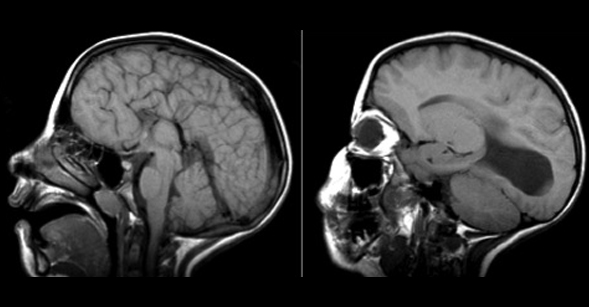Researchers Affirm Dangers of Drinking during Pregnancy
The reminder coincides with International Fetal Alcohol Spectrum Disorders Awareness Day.

Medical and research experts on Fetal Alcohol Spectrum Disorders (FASD), including those at San Diego State, are continuing to warn women about the dangers of drinking during pregnancy.
Their advice coincides with International FASD Awareness Day, Sept 9, and news coverage of a book whose author claims that light drinking during pregnancy has no ill effects on children.
“Supported by decades of research, the National Institute on Alcohol Abuse and Alcoholism (NIAAA) asserts that prenatal alcohol exposure is the leading preventable cause of birth defects and developmental disorders in this country,” said Sarah Mattson, professor of psychology and associate director of SDSU’s Center for Behavioral Teratology.
Brain and behavior
Mattson’s research, funded in part by NIAAA, examines brain structure and function of children with fetal alcohol syndrome and other developmental disorders.
She and Edward Riley, distinguished professor of psychology at SDSU, were among the first scientists to show that prenatal alcohol exposure could alter brain and behavior—even in children without the facial characteristics associated with FAS.
Mattson serves on the National Advisory Council on Alcohol Abuse and Alcoholism. She is also co-director of a new research area of excellence at SDSU. Faculty members from several disciplines are working collaboratively to advance the understanding and treatment of brain-based disorders, such as autism, aphasia and FASD.
Why take the risk?
A recent book by economist Emily Oster claims that an occasional glass of wine during pregnancy is safe. Her advice contradicts research indicating that low to moderate drinking during pregnancy can be associated with miscarriage, stillbirth, preterm delivery and fetal alcohol disorders.
Several national groups have disputed Oster’s assertion, including the National Organization on Fetal Alcohol Syndrome.
“In spite of publications like this book, the message from the medical and research communities remains the same—that women who are pregnant or may be trying to become pregnant shouldn’t drink alcohol,” Mattson said.
“In each woman, there are individual differences and factors at play that interact with alcohol exposure,” she explained “The point is—why take the risk?”
For more information about Fetal Alcohol Spectrum Disorders, their manifestations and their effects, contact the Center for Behavioral Teratology at [email protected]



